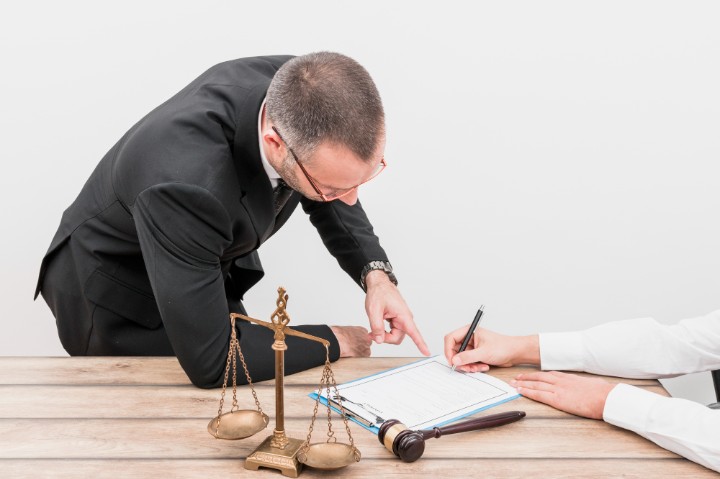A Guide To Offshore Accident Lawyers
Offshore Accident Lawyers: Understanding Offshore accidents can completely change the course of a person’s life, leaving profound physical, emotional, and financial effects. Given the dangerous ocean and deep-sea conditions in which maritime workers navigate and the high-risk operations of offshore businesses in such an environment.
It is critical to understand offshore accident lawyers. These legal experts work in the complex and risky area of maritime law, providing irreplaceable help and guidance.
This material offers a complete portrait of offshore accident lawyers for maritime workers, offshore companies, and other lawyers, covering the roles and behaviors of such professionals, their significance, and aspects of their selection.

Understanding Offshore Accidents
Common Types of Offshore Accidents
Offshore environments are fraught with potential hazards that can lead to accidents. Some of the most common types include:
- Slip and Falls: Wet surfaces and uneven decks can cause slip and fall accidents.
- Equipment Failures: Malfunctioning machinery or equipment can lead to severe injuries.
- Explosions and Fires: Flammable materials and high-pressure systems increase the risk of explosions and fires.
- Chemical Exposure: Workers may be exposed to hazardous chemicals, leading to long-term health issues.
- Drowning: Despite safety protocols, the risk of drowning remains a significant concern.
All of these types of accidents can be harmful to the worker or the company, causing injuries, loss of wages, or death in the most severe cases. For companies, the financial losses and potential lawsuit claims can be significant.
Legal Framework for Offshore Accidents
Offshore accidents fall under a specialized area of law known as maritime or admiralty law. Key legislation includes:
- The Jones Act: Provides protections for seamen who are injured due to employer negligence.
- The Longshore and Harbor Workers’ Compensation Act (LHWCA): Covers non-seamen maritime workers, providing compensation for work-related injuries.
- General Maritime Law: Encompasses a range of legal principles that govern maritime activities.
Determining liability in offshore accidents can be complex, involving multiple parties such as employers, equipment manufacturers, and other contractors. This complexity underscores the need for specialized legal representation.

The Role of an Offshore Accident Lawyer
Services Offered
Offshore accident lawyers provide a range of services designed to help maritime workers and offshore companies navigate the complexities of maritime law:
- Legal Consultation: Initial assessment of the case to determine potential claims.
- Case Investigation: Gathering evidence, interviewing witnesses, and consulting experts.
- Claim Filing: Preparing and filing claims under relevant laws such as the Jones Act or LHWCA.
- Negotiation: Engaging in settlement negotiations with responsible parties and insurance companies.
- Litigation: Representing clients in court if a fair settlement cannot be reached.
Importance of Legal Representation
For maritime workers, having an offshore accident lawyer ensures that their rights are protected and that they receive fair compensation for their injuries. For offshore companies, legal representation helps manage liabilities, navigate regulatory compliance, and mitigate financial risks.
Case Studies
Real-Life Examples
- Case Study 1: Slip and Fall Incident
- A deckhand slipped on an oil spill that was not properly cleaned up. The offshore accident lawyer successfully proved employer negligence, resulting in a substantial settlement for medical expenses and lost wages.
- Case Study 2: Equipment Failure
- A worker suffered severe injuries due to a malfunctioning crane. The legal team demonstrated that the manufacturer was liable for the defect, securing compensation for the worker and leading to improved safety protocols.
- Case Study 3: Chemical Exposure
- Long-term exposure to hazardous chemicals led to chronic health issues for a worker. The offshore accident lawyer ensured that the worker received compensation for ongoing medical treatment and loss of future earnings.
These cases highlight the critical role that offshore accident lawyers play in securing justice and compensation for injured workers while promoting safer working conditions.
How to Choose the Right Offshore Accident Lawyer
Key Factors to Consider
- Experience: Look for lawyers with a proven track record in maritime law and offshore accident cases.
- Reputation: Research client reviews and testimonials to gauge the lawyer’s reputation and success rate.
- Specialization: Ensure the lawyer specializes in maritime law and has specific experience with the type of accident in question.
- Resources: A well-established law firm with ample resources can better handle complex cases.
- Communication: Choose a lawyer who communicates clearly and keeps you informed throughout the legal process.
Conclusion
Offshore accident lawyers are instrumental in safeguarding the interests of maritime workers and assisting offshore companies in better understanding the legal nuances of maritime law.
Their expertise is ensured to secure injured workers reasonable compensation and assist companies in managing their legal liability.
Do not wait another minute if you or someone you know has experienced an offshore accident. Selecting the correct offshore accident lawyer is the first step toward ensuring that your rights are protected and the correct level of compensation is solicited.
Contact our expert squad today for experienced advice and a quotation, and let us assist you in navigating the many implications of offshore incident laws.
Also Read: The Secret Strategies For Successful Tax Planning For Higher Returns.

1 thought on “The Essential Guide to Offshore Accident Lawyers: Safeguarding Rights and Navigating Legal Waters”